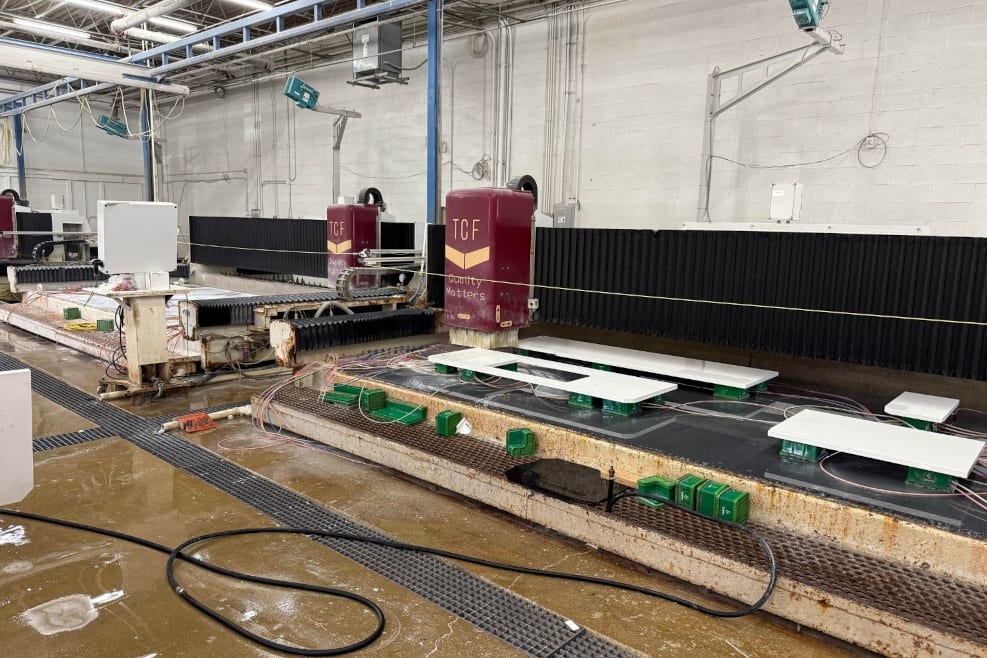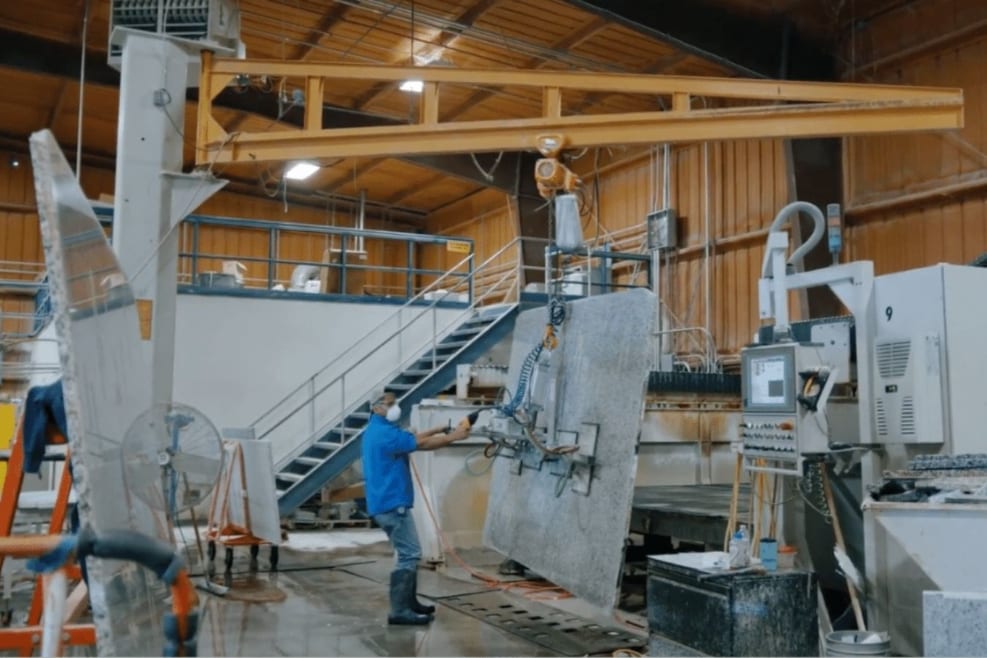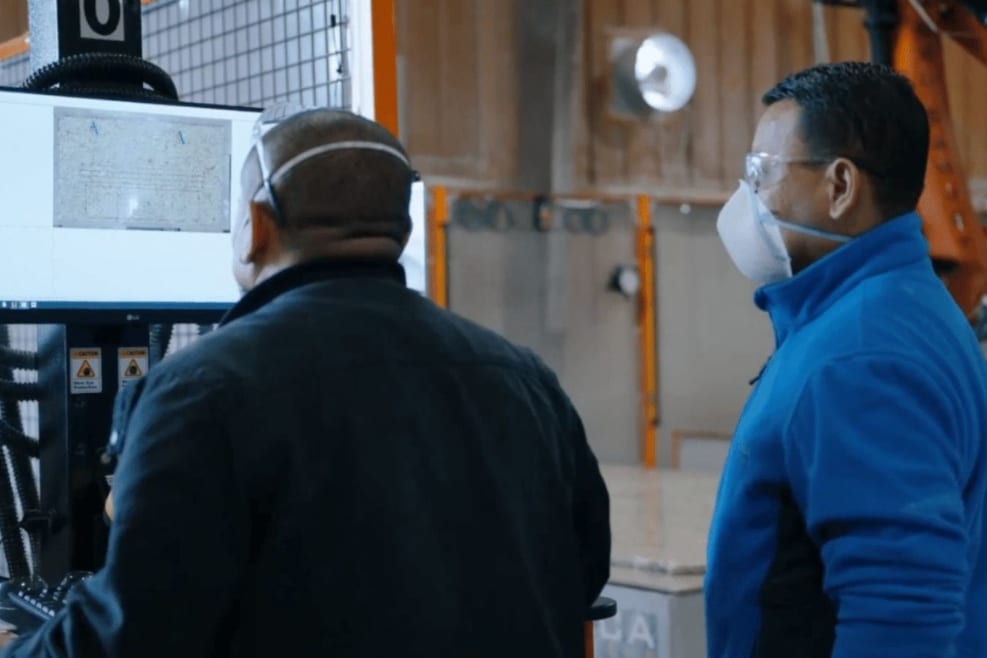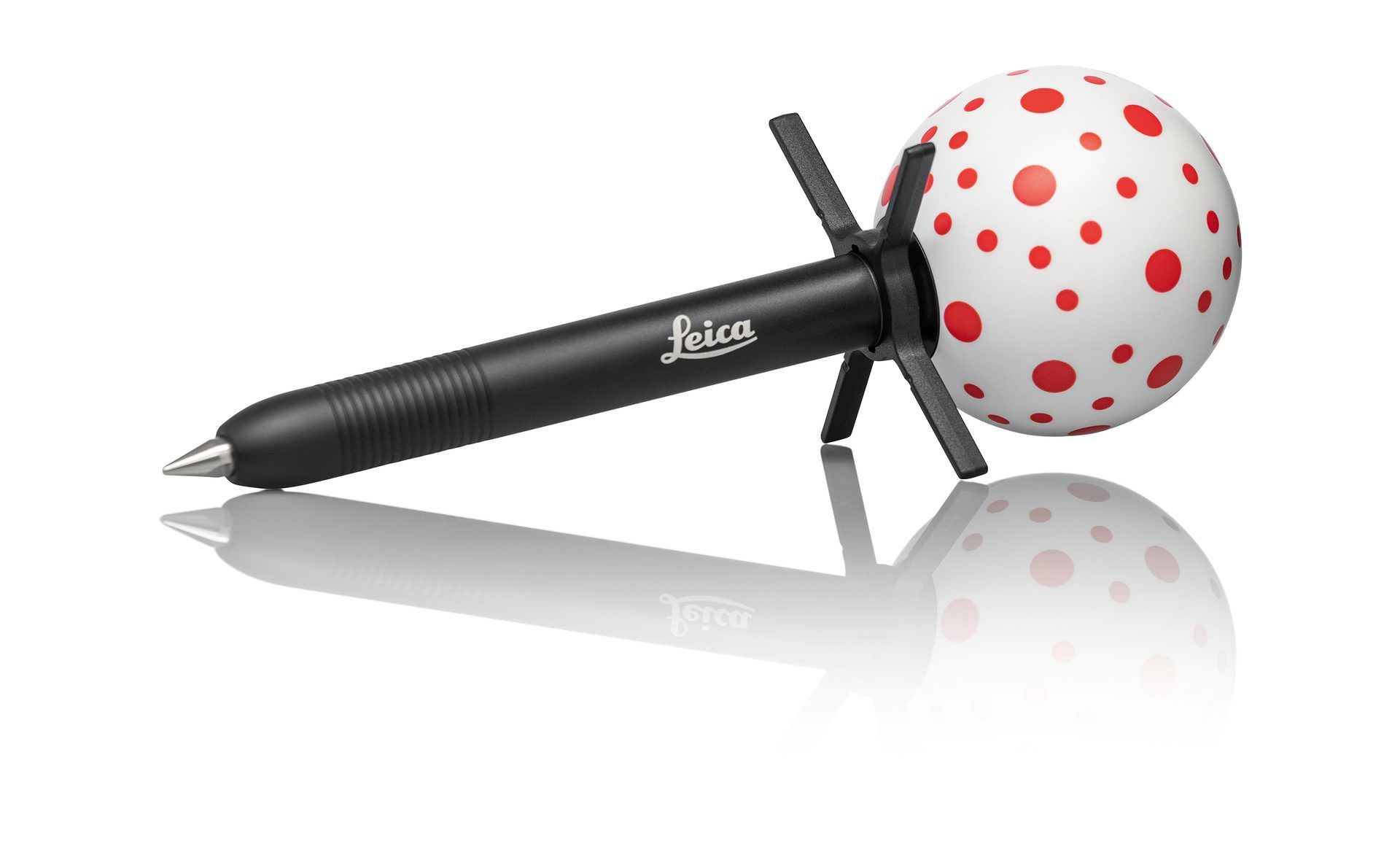New machinery and technology in a fabrication shop can assist in streamlining processes, reducing labor and increasing capacity. Photo courtesy of The Countertop Factory.
How Fabricators Are Embracing Automation in the Shop
From machinery brands and types of equipment to digital tools and software, there are many considerations when transitioning and staying current on automation for fabrication
Jennifer richinelli
While having an “A” team in place is a critical component to running a successful fabrication shop, investing in the right machinery for production and efficiency is equally as important. Stone World recently asked several fabricators to share their experiences and thoughts on automation. Participating were:
- Joanne Bish, general manager/owner; DuBois Granite & Quartz, DuBois, PA
- Brian Lynch, Blue Sky Countertops; Texas and Oklahoma
- Geoffrey Gran, The Countertop Factory; Illinois and Arizona
Read what they had to say:
SW: What key factors do you consider before investing in a new piece of machinery?
JB: When investing in a new piece of machinery, I consider the following factors:
- Impact on production and product line — Will it allow us to produce a product that our competition cannot?
- What additional resources will be needed to operate?
- ROI — Impact of cash flow, overall cost including financing charges
GG: There are several factors that we need to review before purchasing a new piece of machinery:
- Does this new piece of machinery remove a bottleneck (choke point) in one of our processes?
- Will this new piece of machinery reduce labor costs or material costs?
- What is the Return On Investment (ROI) for this purchase? If more than 36 months, what are the other justifications for purchasing?
- Will this new purchase allow for an increase in revenue (by increasing capacity)?
- Do we have the current skill set to operate this new machinery?
BL: The most important factors to consider are how much the new machine will improve efficiency, productivity, profitability and return on investment. The machine needs to also be user-friendly and reliable for years.
SW: Have you made any recent equipment investments that significantly impacted your shop?
JB: In 2024, we purchased a Saber jet CNC/waterjet and HydroClear water treatment system from Park Industries. The decision was made after a need arose to replace old equipment and increase our water treatment efficiency. The purchase was made with a combination of a traditional bank loan and loans through local government entities that encourage economic development.
GG: We are always looking to add machinery and technology into our business to streamline processes, reduce labor (specifically overtime) and increase capacity.
BL: We recently purchased a Robo SawJet RSJ201[from BACA Systems] and it has dramatically improved our production speed and overall productivity. We also recently purchased The Stone Vision Slab Scanner, which is a collaboration between Slabsmith & Helios, and it is a high-resolution, next-generation scanner that enables us to create three-dimensional images for our clients.

"Having great relationships with the manufacturers is a key step," said Geoffrey Gran of The Countertop Factory. "Even if we are not ready to make an equipment purchase, we always want to hear about the newest technologies in the market." Photo courtesy of The Countertop Factory.
SW: How do you stay informed about the latest fabrication technology and equipment?
JB: To stay informed, we subscribe to numerous trade publications, participate in discussion with peers, industry representatives and machine manufacturers.
GG: Having great relationships with the manufacturers is a key step. Even if we are not ready to make an equipment purchase, we always want to hear about the newest technologies in the market. And then we attend The International Surface Event (TISE) every year to see all the new machinery, tooling and technologies available.
BL: There are many ways to ensure that you are educated in the latest and greatest -- attending the shows where the industry leaders have live demonstrations of equipment on display, networking with other fabricators within ISFA, Rockheads, SFA and other groups, and reading Stone World, course!

“There is always resistance to “changing the system,” and you need to make sure that your leadership team and your employees know and believe that it is going to improve operations, safety and overall profitability," said Brian Lynch of Blue Sky Countertops. Photo courtesy of Blue Sky Countertops.
SW: Are there any digital tools or software programs you rely on for managing operations or finances?
JB: We utilize Moraware as the lead tracking and project management software.
GG: Many years ago, we elected to become a fully automated and paperless company. So, we rely on many software programs to operate our business. Here are just a few:
- Moraware
- SPEEDlabel
- SPEEDfolder
- SlabSmith
- SlabCloud
- PowerBI
BL: We have been partnered with Laser Products for all our templating needs, ActionFlow for our ERP system and Slabsmith for our inventory management.
SW: What advice would you give to a fabricator considering the transition to a fully automated shop?
GG: First, I suggest that you have a five-year plan that highlights the growth you want to see in your business. Second, plan the fabrication plant and the machinery needed to reach your goals (not today’s goals but the five-year plan). Third, look at all the options. Start simple with the idea that upgrading technology as you grow is not scary. Do not overbuild but plan for expansion. Customer service and support from your vendor is just as important as the technology you purchase.
BL: Blue Sky Countertops leans deep into technology and automation when we are able. A big consideration when making the transition is what sort of redundancy or failsafe will you have in place in case a section of your automated line fails. There is a reason that airline engineers build redundance into planes, because parts will fail and there has to be a backup so that your production is able to continue.

Automated machinery and shop software programs contribute to better efficiency in the production process. Photo courtesy of Blue Sky Countertops.
SW: What challenges have you faced in implementing automation and how did you overcome them?
GG: Change is inevitable and adverse reactions to change are a given. Get your stakeholders involved early in the process. Let your team be part of the meetings and demos on the new technology. If your team buys into your five-year plan and can be part of the decision-making process, adoption becomes much easier.
The biggest challenge is trying to operate your normal business during the disruption of machine installations, software implementations and training. This can put increased stress on the staff, so have some rewards once the new tech/machinery is fully operational.
BL: The learning curve is always going to be a challenge along with your employees’ reticence to implement anything new. There is always resistance to “changing the system,” and you need to make sure that your leadership team and your employees know and believe that it is going to improve operations, safety and overall profitability. A more profitable company can do so much more for its team.
SW: Looking back, is there anything you would have done differently when considering investment in machinery, tooling or software?
GG: We are always very diligent and patient when it comes to new machinery purchases. Equipment is expensive and you are going to live with that machinery for many years, so finding the right partner is crucial to success.
If we had to do it all over again, we would continue to work with companies that are always innovating with the ability to upgrade our machinery as our needs outgrow existing operations. While it is hard to find a single source for all your needs, finding a few key partners could make growth an easier process.
BL: Hindsight is 20/20, therefore a good entrepreneur or business manager will always self-critique decisions that were made, but if you are thorough on your due diligence, you will no doubt prove that your decision was right. The results will be tangible and clear — especially when you are looking at your profitability.
SHARE THIS
Rod Sigman CTC, CCTS, CSMTT is the business development leader for MAPEI Corporation’s UltraCare® line of products for the care and maintenance of tile and stone products. Sigman has a proven track-record of success in the flooring industry, with experience in both training and education, as well as all support functions pertaining to national sales accounts and distribution. He has served on the technical committees of the National Tile Contractors Association (NTCA) and the Natural Stone Institute (NSI). He has successfully completed the Ceramic Tile Consultant Course, is a Certified Ceramic Tile Specialist (CCTS) and is also a Concrete Slab Moisture Testing (CSMT) Technician. Further, he was recognized by the Marble Institute of America (now the Natural Stone Institute) as a significant influence for the stone industry.
